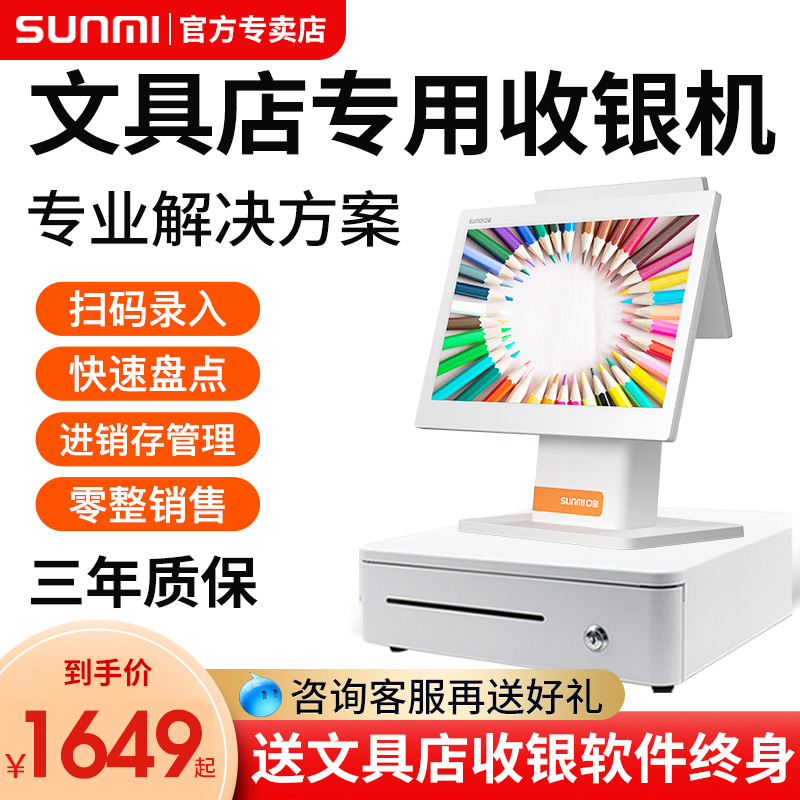提升收银效率:选择适合办公环境的收银机
甙邵登峰
2024-10-26 11:56:54
0次
提升收银效率:选择适合办公环境的收银机
在商业运营中,收银效率是决定店铺运营速度和客户满意度的关键因素。选择适合办公环境的收银机,不仅可以提高收银效率,还可以为顾客提供更好的购物体验。本文将探讨如何根据办公环境选择合适的收银机。
一、了解办公环境
在选择适合的收银机之前,首先要了解办公环境的特点。包括店铺的面积、客流量、商品种类以及顾客的购物习惯等。这些因素将有助于确定所需的收银机类型和功能。
二、考虑收银机的功能和性能
根据办公环境的特点,可以选择具备不同功能和性能的收银机。以下是一些需要考虑的功能和性能:
1. 兼容性:收银机应能与现有的支付系统、库存管理系统和会员管理系统等兼容,以便实现无缝对接。
2. 操作便捷性:收银机的操作界面应简洁明了,易于员工学习和使用。
3. 速度:收银机的处理速度要快,以确保在高峰期能够快速完成结账。
4. 耐用性:收银机需要经受住高强度的使用,因此要选择耐用的设备。
5. 安全性:收银机应具备数据安全和防作弊功能,以保护商家的利益。
三、选择适合的收银机类型
根据办公环境和功能需求,可以选择以下几种类型的收银机:
1. 台式收银机:适用于固定位置结账的场景,具有较大的显示屏和键盘,便于员工操作。
2. 嵌入式收银机:可集成到柜台或桌面上,节省空间,方便顾客结账。
3. 移动式收银机:适用于需要移动结账的场景,如超市、商场等。
4. 一体化收银机:集成了打印机、扫描器、显示器等功能,适合需要多种功能的店铺。
四、翻译成英文
Enhancing Checkout Efficiency: Selecting a POS System Suitable for the Office Environment
In commercial operations, the efficiency of checkout is a crucial factor determining store operations speed and customer satisfaction. Selecting a POS system that is suitable for the office environment can not only improve checkout efficiency but also provide a better shopping experience for customers. This article will explore how to choose a suitable POS system based on the office environment.
I. Understanding the Office Environment Before selecting a suitable POS system, it is necessary to understand the characteristics of the office environment, including the store's area, customer flow, product categories, and customer shopping habits. These factors will help determine the type and functionality of the POS system required. II. Consideration of POS System Functions and Performance Based on the characteristics of the office environment, a POS system with different functions and performance can be selected. The following are some functions and performances that need to be considered: 1. Compatibility: The POS system should be compatible with existing payment systems, inventory management systems, member management systems, etc., to achieve seamless integration. 2. Operational Convenience: The operation interface of the POS system should be simple and clear, easy for employees to learn and use. 3. Speed: The processing speed of the POS system should be fast to ensure fast checkout during peak hours. 4. Durability: The POS system needs to endure heavy use, so it is necessary to choose a durable device. 5. Security: The POS system should have data security and anti-fraud functions to protect the interests of the merchant. III. Selecting a Suitable Type of POS System Based on the office environment and functional requirements, several types of POS systems can be selected, such as: 1. Desktop POS system: suitable for scenarios where checkout is fixed at a location, with a large display and keyboard for easy employee operation. 2. Embedded POS system: can be integrated into counters or desktops, saving space and facilitating customer checkout. 3. Mobile POS system: suitable for scenarios where checkout requires mobility, such as supermarkets and malls. 4. Integrated POS system: integrates functions such as printer, scanner, display, suitable for stores that require multiple functions.相关内容
热门资讯
收银机使用指南,让您的办公更高...
收银机使用指南摘要:本指南详述了收银机开机登录、商品录入、结账、打印小票、退款优惠及交班日结等步骤,...
高效、便捷的办公设备——收银机...
本文介绍了收银机的使用方法与常见功能,包括商品录入、价格查询、交易结算、打印小票等,并提供了操作技巧...
从零到精通:操作使用收银机的方...
文章摘要:本文详述了从零到精通操作使用收银机的方法,包括了解基础、学习基本操作、掌握进阶操作、实践与...
高效、便捷的办公设备——智能收...
智能收银机使用教程:高效便捷的办公设备,可快速完成商品销售、结算和支付。教程涵盖开机登录、商品录入、...
办公室的得力助手——多功能收银...
多功能收银机指南:简述了开机设置、商品录入管理、收银操作、其他功能及维护保养方法。它是现代办公室得力...
轻松上手:小白也能掌握的办公收...
本指南为办公收银机小白提供快速上手操作方法,包括开机登录、基本操作和注意事项等。指导用户轻松掌握商品...
办公好帮手:收银机操作教程与常...
本文介绍了收银机操作教程与常见问题解答,包括开机初始化、商品录入、结账流程、退款与促销管理以及交班与...
快速上手:收银机操作教程及常见...
收银机教程:开机登录、界面认识、商品录入结账、退款作废及报表统计。常见问题:登录、扫描枪、结账支付、...
全新一代办公必备:智能收银机使...
本文介绍了智能收银机的使用指南,包括其简介、使用步骤和功能特点。智能收银机可高效结账、支持多种支付方...
从入门到精通:收银机使用指南
本文详细介绍了从入门到精通使用收银机的指南,包括基本构造、功能、操作、退换货处理及报表统计等。还介绍...



